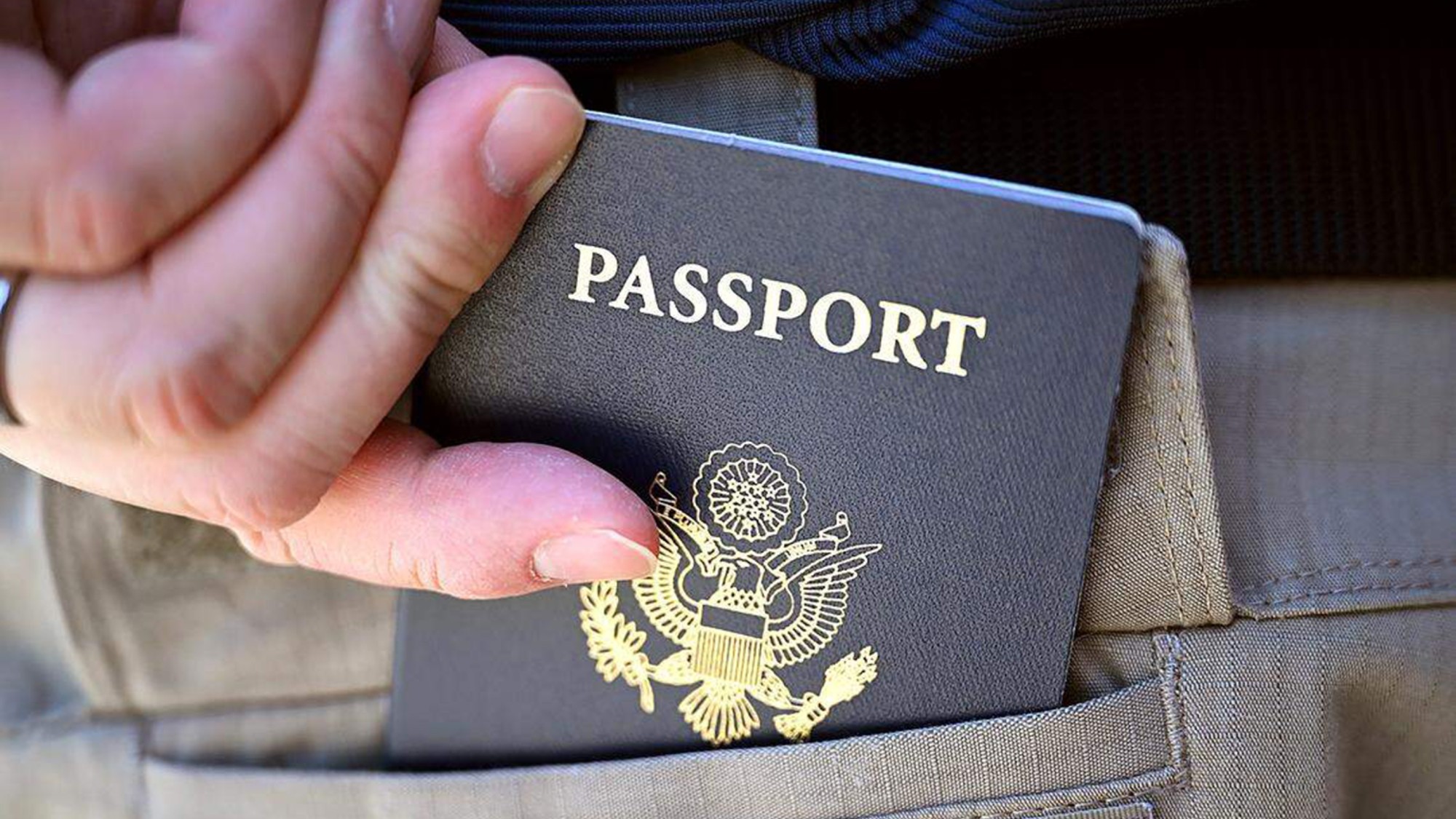What the Wild West can teach us about the final frontier
In space, no one can hear you yeehaw


The era of private space exploration is upon us. SpaceX thrilled recently by launching a roadster into a near-Mars orbit. Moon Express, Planetary Resources, Blue Origin, and other companies are gearing up their own projects. One thing they ostensibly agree on? They don't want space to turn into "the Wild West," as a Planetary Resources official put it.
"Our goal is to have a space environment that is populated by people acting responsibly," insisted Peter Marquez, a vice president at the company.
Nevertheless, a Wild West free-for-all might be inevitable for the final frontier.
The Week
Escape your echo chamber. Get the facts behind the news, plus analysis from multiple perspectives.

Sign up for The Week's Free Newsletters
From our morning news briefing to a weekly Good News Newsletter, get the best of The Week delivered directly to your inbox.
From our morning news briefing to a weekly Good News Newsletter, get the best of The Week delivered directly to your inbox.
The basic problem is that space is essentially lawless, especially when it comes to property. Who can use what in space, and how? This is a vitally important question for space exploration companies, which have to spend gargantuan sums of money to fund their projects and need to be reasonably certain they'll one day turn a profit.
Space's guiding document is the Treaty on Principles Governing the Activities of States in the Exploration and Use of Outer Space (or the "Outer Space Treaty" for short). Signed in 1967 and boasting over 100 signatories, including the United States, Russia, and China, the Outer Space Treaty forbids any nation from making sovereign territorial claims in space. Back when the treaty was drafted, the Soviet Union wanted to completely limit space exploration to governments. But the treaty ultimately sided with the United States, and stated that "activities of nongovernmental entities in outer space ... shall require authorization and continuing supervision by the appropriate state party to the treaty."
In other words, the treaty technically allows private space exploration, which made the current boom possible. But it also dodged the question of property rights, leaving it up to each signatory nation to enforce unspecified rules.
Now that private space exploration is actually a thing, this clause is a serious problem.
A free daily email with the biggest news stories of the day – and the best features from TheWeek.com
Take the concept of "authorization and continuing supervision" by the private company's government. Even the U.S., arguably the most space-savvy country on Earth, doesn't have an agency capable of those duties.
The Nevada-based Bigelow Aerospace, for instance, is developing inflatable space habitats. (Imagine a balloon that's super compact when deflated and can be pumped full of air to create a space station module or a living space on the moon.) Bigelow wants to test them out on the lunar surface by 2025, but no one in the U.S. government actually has the authority to "say yes" to the project. The closest thing is the Federal Aviation Administration (FAA). The agency regulates launches, and figured out a workaround in 2015: It greenlit a Bigelow launch that would land a dwelling on a particular spot on the moon, and stipulated no one else could land anything nearby. In 2016, the FAA did the same for Moon Express, which wants to put a lander with a telescope on the lunar surface.
Bigelow Aerospace's founder insisted this fix doesn't imply ownership of any part of the moon — and thus a sovereign claim. "It just means that somebody else isn't licensed to land on top of you or land on top of where exploration and prospecting activities are going on, which may be quite a distance from the lunar station," he said.
But it sure looks and functions a lot like ownership. The FAA's workaround will probably be enough to keep American companies playing nice with each other. But what about when a Chinese or Russian company wants to land in the vicinity of an American lunar mining operation? The FAA will have to coordinate with its Chinese or Russian counterparts, establishing shared rules. Those limitations could anger private U.S. companies, who could then pressure the American government to take their side.
It can be subtle pressure, too. Planetary Resources, for instance, wants to mine asteroids, and is originally from Seattle. But it's relocating much of its operation to Luxembourg, lured by government cash and a new law — the first in Europe — that allows private companies to keep the resources they find in space.
Congress may already be getting the message. Republicans in particular are promoting "permissionless innovation" in outer space, and in 2015, Congress passed the SPACE Act. Similar to the Luxembourg law, it authorizes private U.S. companies to transport and sell any resource obtained during commercial efforts in space. Its language is vague, but it dances rather close to violating the Outer Space Treaty's rule against sovereign claims. Another bill in the works, the American Space Commerce Free Enterprise Act, would replace the FAA's patchwork solution with a new official agency.
There are a few historical examples for how things could develop. There's the Law of the Sea, which governs international waters, and follows a kind of "keep what you catch" rule for commercial operations. But it's not without its tensions, and mining or colonizing the moon won't have the same come-and-go fluidity as fishing vessels. There's also Antarctica, where everyone has agreed (for now) to a treaty that forbids prospecting for minerals. It may be that economically exploiting Antarctica or deep sea drilling is so monumentally difficult that countries rarely step on each other's toes enough to cause serious conflict. The incredibly inhospitable environment of space might play out the same way.
But the closest analogue might be the United States' westward expansion across North America.
Whatever their concerns about space becoming "the Wild West," Planetary Resources praised the SPACE Act of 2015 for its spiritual similarity to the Homestead Act of 1862. The latter law gave a grant of 160 acres to anyone who paid a registration fee, and could actually get to the plot and live there for five years. This and similar laws were a form of "cowboy socialism" that allowed for the settlement of the West. But as an inescapable government project, they also inevitably fed a chaotic and often violent territorial expansion.
You can see how the FAA's workaround, the SPACE Act, and the upcoming American Space Commerce Free Enterprise Act all push in the general direction of the Homestead Act: If you get to a resource, you can keep it, and we'll make sure no one else muscles in on your turf.
It's also hard to see how this doesn't eventually run headlong into the Outer Space Treaty. Everyone wants rules in theory, right up until the moment the rules prevent you from seizing power or making money. A sufficiently pugnacious U.S. government might solve the conundrum by just ditching the treaty entirely.
"It's very much a Wild West kind of mentality and approach right now," said John Thornton, CEO of the lunar startup Astrobotic. And it's not obvious how that will change.
Jeff Spross was the economics and business correspondent at TheWeek.com. He was previously a reporter at ThinkProgress.
-
 US citizens are carrying passports amid ICE fears
US citizens are carrying passports amid ICE fearsThe Explainer ‘You do what you have to do to avoid problems,’ one person told The Guardian
-
 All roads to Ukraine-Russia peace run through Donetsk
All roads to Ukraine-Russia peace run through DonetskIN THE SPOTLIGHT Volodymyr Zelenskyy is floating a major concession on one of the thorniest issues in the complex negotiations between Ukraine and Russia
-
 Why is Trump killing off clean energy?
Why is Trump killing off clean energy?Today's Big Question The president halts offshore wind farm construction
-
 How Bulgaria’s government fell amid mass protests
How Bulgaria’s government fell amid mass protestsThe Explainer The country’s prime minister resigned as part of the fallout
-
 Femicide: Italy’s newest crime
Femicide: Italy’s newest crimeThe Explainer Landmark law to criminalise murder of a woman as an ‘act of hatred’ or ‘subjugation’ but critics say Italy is still deeply patriarchal
-
 Brazil’s Bolsonaro behind bars after appeals run out
Brazil’s Bolsonaro behind bars after appeals run outSpeed Read He will serve 27 years in prison
-
 Americans traveling abroad face renewed criticism in the Trump era
Americans traveling abroad face renewed criticism in the Trump eraThe Explainer Some of Trump’s behavior has Americans being questioned
-
 Nigeria confused by Trump invasion threat
Nigeria confused by Trump invasion threatSpeed Read Trump has claimed the country is persecuting Christians
-
 Sanae Takaichi: Japan’s Iron Lady set to be the country’s first woman prime minister
Sanae Takaichi: Japan’s Iron Lady set to be the country’s first woman prime ministerIn the Spotlight Takaichi is a member of Japan’s conservative, nationalist Liberal Democratic Party
-
 Russia is ‘helping China’ prepare for an invasion of Taiwan
Russia is ‘helping China’ prepare for an invasion of TaiwanIn the Spotlight Russia is reportedly allowing China access to military training
-
 Interpol arrests hundreds in Africa-wide sextortion crackdown
Interpol arrests hundreds in Africa-wide sextortion crackdownIN THE SPOTLIGHT A series of stings disrupts major cybercrime operations as law enforcement estimates millions in losses from schemes designed to prey on lonely users
